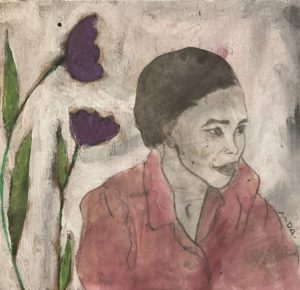Ella Baker grew up listening to her grandmother’s stories about life under slavery. Her grandparents bought and farmed land that was part of a North Carolina plantation where they had been enslaved. She spent her life pursuing social justice. “Remember,” she said in 1964 in a speech on Freedom Day in Hattiesburg, Miss., “we are fighting not just for the freedom of the Negro alone, but for the freedom of the human spirit, a larger freedom that encompasses all of mankind.”
 In 1927, Baker graduated from Shaw University in Raleigh. She was valedictorian. Years later, she organized a meeting at her alma mater for the student leaders of the sit-ins in April 1960. That meeting led to the beginnings of the Student Nonviolent Coordinating Committee.
In 1927, Baker graduated from Shaw University in Raleigh. She was valedictorian. Years later, she organized a meeting at her alma mater for the student leaders of the sit-ins in April 1960. That meeting led to the beginnings of the Student Nonviolent Coordinating Committee.
Soon after her college graduation, Baker moved to New York City and became the national director of the Young Negroes Cooperative League, which helped young Black people pool resources to gain economic power. She went on to work for the NAACP in the 1940s, raising funds and recruiting members. And in 1957, Baker moved to Atlanta, where she helped launch the Southern Christian Leadership Conference with Martin Luther King, Jr.
Baker had her disagreements with conference leaders, men she said had “heavy feet of clay” or were too “slow preacher” in her view.
A grassroots organizer whose career spanned 50 years, Baker wanted to inspire activism in younger generations, earning her a Swahili nickname, “Fundi,” meaning a person who teaches a craft to the next generation, according to the Ella Baker Center. “Give light and people will find the way,” she said. —Kate Wallace Rogers



